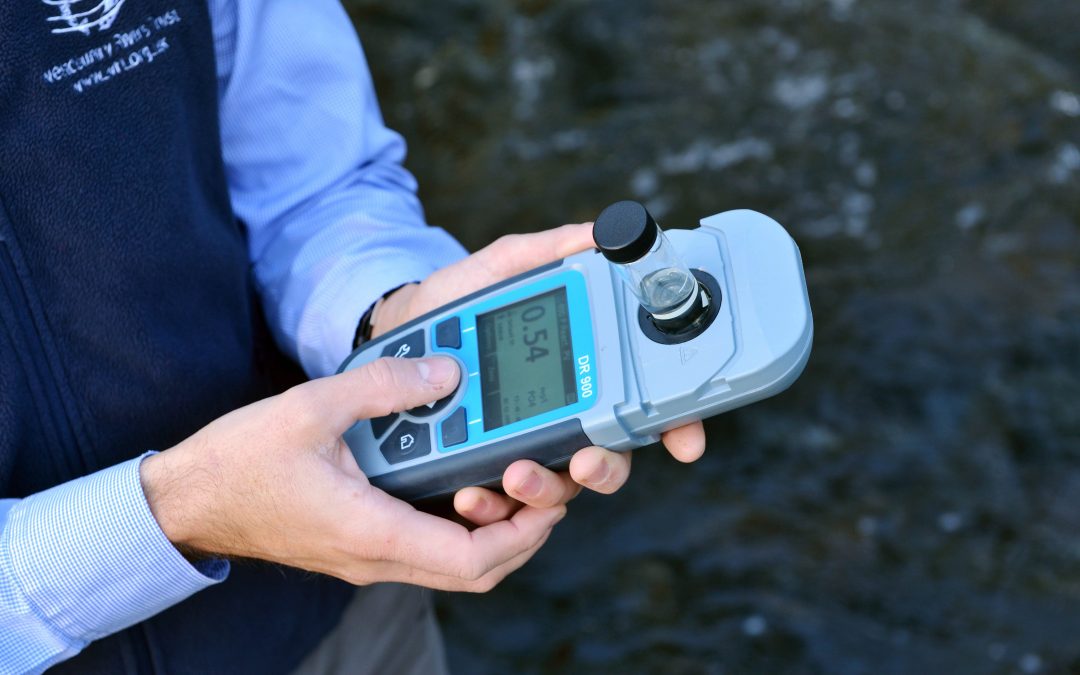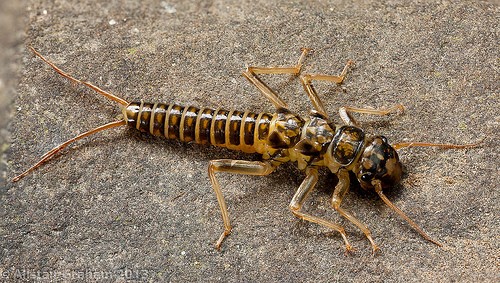The Dart Acid Remediation trial on the West Dart River has a specific focus; to raise the pH level (the measure of how acid or alkaline a solution is) of the river water. The iconic granite of Dartmoor means that the river is naturally slightly acidic due to the chemical reactions between the granite and rain water. This natural environment is home to many species which thrive under these conditions; hardy invertebrates like Elmis aenea (a tiny water beetle) and Protonemura meyeri (a stonefly), algae and microscopic diatoms such as Achnanthidium minutissimum, and large fish species like salmon and trout.
But the West Dart River is no longer only slightly acidic. Old problems have come back round, as they do, and it is thought that old acid rain is causing the pH level to fall too far in wet weather (acid troughs due to flushing) meaning this river is not consistently able to support its wildlife communities and the fish have disappeared. These troughs have to go!
Plymouth University have employed me to undertake, in collaboration with South West Water and the Westcountry Rivers Trust, this liming trial over a 3 year period as part of my PhD in order to eliminate these troughs and return the river to how it once was. The trial involves introducing limestone (calcium carbonate) to the West Dart River in the form of, essentially, giant teabags and carefully monitoring the effect this has on both the immediate and wider environment for water chemistry and any effects on the aquatic life. The carbonate acts as a sponge and soaks up the excess acid, storing it harmlessly as it gets washed away and dispersed.
When the pH no longer drops below levels that the fish can survive in, it is hoped that they will return to what was once a thriving salmon river.


